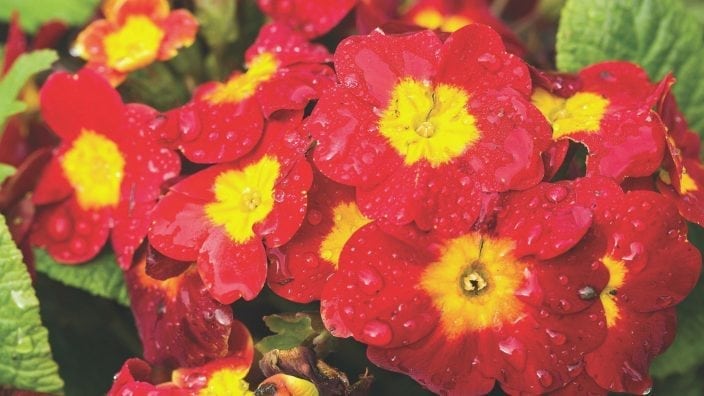Applications for Ohio Farm Bureau Health Plans now available
Members have three ways to apply: contacting a certified agent, calling 833-468-4280 or visiting ohiofarmbureauhealthplans.org.
Read MoreGold pocket watches, delicate china and heavenly scented flowers are among the heirlooms passed along from one generation to the next.
Gardeners especially treasure the plants, even those without fragrance.
“They remind you of your heritage,” said Judy Gray of the daisies passed down through generations of her husband Jim’s family. They continue to flourish at their farm near Richwood, where these Union County Farm Bureau members grow mostly field corn and soybeans on 1,300 acres.

Dorothy Gray, Jim’s grandmother, was an avid gardener. She brought the daisies from the log cabin near Radnor where her grandmother lived. She planted them on the Richwood area farm where Jim’s father was born and the Grays reside.
The daisy chain continues to lengthen. One of their two daughters has the daisies at her home, making this the sixth generation to grow them. The daisies were even used in the bridal bouquets of their daughters’ weddings.
No one has identified the plants, which produce dime-size blooms from late June or early July into fall. The plants grow 2 to 3 inches tall, though occasionally a foot. They produce more flowers in sunny places than shady. “These things grow anywhere,” Judy said.
Other heirlooms from Dorothy’s garden are peonies and a pink-and-white rose. She grew the rose from a rooted cutting made from the stem of a blossom in a bouquet. It grows without special care.
Such adaptability and persistence are among the appealing characteristics of heirlooms.
“They’re incredibly hardy, and that’s why they become pass-alongs,” said Brian Gregory, senior horticulturist at Stan Hywet Hall & Gardens. The restored Akron estate of F. A. Seiberling, cofounder of Goodyear Tire & Rubber Co., features several gardens. He works in the Great Garden, an acre of fruit trees and perennial and annual flowers used by the volunteer flower arrangers for the mansion. Originally the garden also supplied food and herbs.
He said sometimes when he’s working in the garden “someone walks by and says, ‘My grandmother used to have that flower.’ I think it’s the emotions that appeal.”
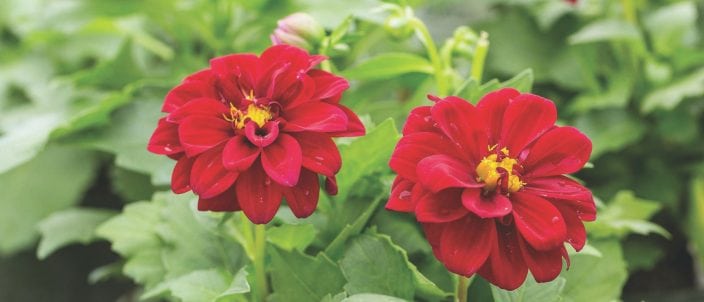
While the popularity of grandmother’s china and furniture has given way to Ikea minimalism, heirloom flowers – and vegetables – remain in demand.
“There’s a huge interest,” said Kathy Styer, executive director of Adena Mansion & Gardens Historic Site in Chillicothe, the home of Ohio’s sixth governor, Thomas Worthington. The site’s popular annual, fundraising heirloom plant sale is held in May. But heirlooms are also available at garden centers and in catalogs. “They’re easily found,” she said.
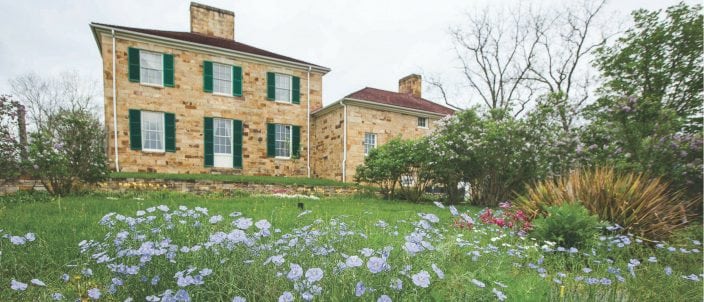
Pass-along plants don’t have to be inherited or bought. They’re often swapped or given as gifts among gardeners and their fortunate friends.
Besides the nostalgic value, heirlooms fit with trends of sustainability and local sourcing, said Shelley Funai, garden manager at Stan Hywet. “People don’t want to buy new seed every year.”
Some of the pass-alongs, such as cone-flower and bee balm, also fill roles in pollinator friendly landscapes, wildflower meadows and prairie-style plantings.
Such pass-along plants have been part of Ohio’s gardens since pioneer times.
Worthington and his wife, Eleanor, were horseback riding near Adena, when she spotted a wild pink rose and marked it. She returned later to dig it up and plant it in the garden, Styer said. Unfortunately the rose disappeared from commerce several decades ago.

Perhaps some of the countless new varieties introduced in recent years will prove as appealing to future generations as today’s pass-alongs do to contemporary gardeners. Most likely, however, some of today’s heirlooms will be growing next to them.
Why? Styer said, “It brings back a memory.”
Learn more about heirloom plants and the gardens of yesteryear in Restoring American Gardens / An Encyclopedia of Heirloom Ornamental Plants 1640-1940 (Timber Press), by Denise Wiles Adams. She received her Ph.D. in horticulture from Ohio State University.
Heirloom perennials, such as columbines, iris, peonies, lavender, poppies, daffodils, tulips and crocus; and annuals, such as zinnias, calendula, hyacinth bean and nigella, can add a nostalgic touch to 21st century landscapes.
Vegetables range from antique varieties of asparagus to tomatoes to zucchini. Among heirloom beans, some bear ornamental flowers: Scarlet Runner Bean (red/orange) and Painted Lady (white-and-red).
Sources include garden centers, garden catalogs and specialty growers. Burpee, Johnny’s Selected Seeds and Seed Savers Exchange are among mail-order sources.
While heirlooms are tough, some are susceptible to diseases that hybrids resist. Modern tomatoes, for instance, usually have some initials after their name indicating resistance to verticillium, fusarium and other common blights.


Members have three ways to apply: contacting a certified agent, calling 833-468-4280 or visiting ohiofarmbureauhealthplans.org.
Read More

Farmers, agribusinesses and community members are encouraged to nominate their local fire departments for Nationwide’s Nominate Your Fire Department Contest through April 30.
Read More

Introduced by Sen. Paula Hicks-Hudson, SB 120 would establish the Urban Farmer Youth Initiative Pilot Program.
Read More

Gases, vapors, and fumes can all create risk. How can we measure and protect ourselves from them?
Read More

The Ohio Farm Bureau’s Young Agricultural Professionals State Committee has named its 2026 leadership and the individuals who will be serving on the state committee for 2026-2028.
Read More

The Ohio Farm Bureau Foundation has multiple scholarships available to Ohio students from rural, suburban and urban communities who are pursuing degrees with a connection to the agricultural industry.
Read More

With 100% bonus depreciation now permanent, farmers can deduct the full cost of a new agricultural building in the year it’s placed in service.
Read More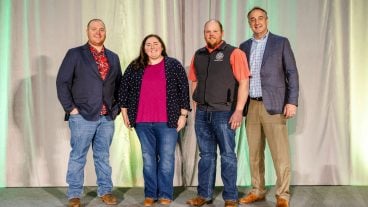
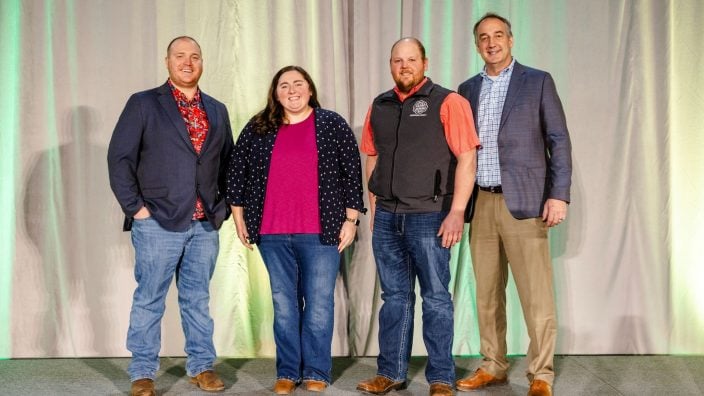
Lincoln Deitrick was named the Outstanding Young Farmer, Denver Davis won the Excellence in Agriculture Award, and Margaret Houts won the Discussion Meet.
Read More
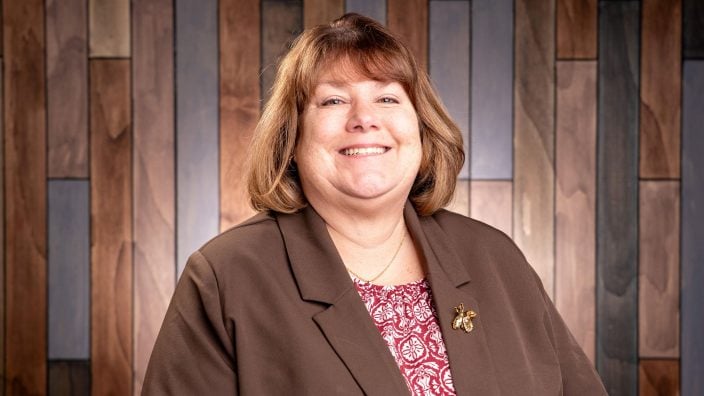
Michelle Downing of Franklin County has been named finance director of county operations for Ohio Farm Bureau.
Read More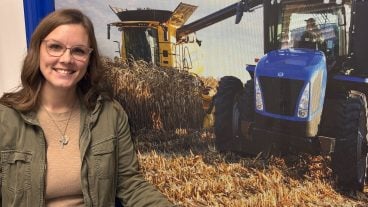
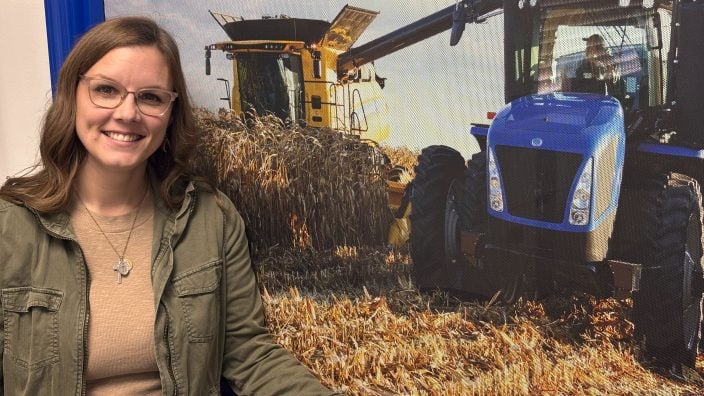
Remember why you joined Farm Bureau and find others that want to join for the same reasons. ~ Alicia Weaver
Read More